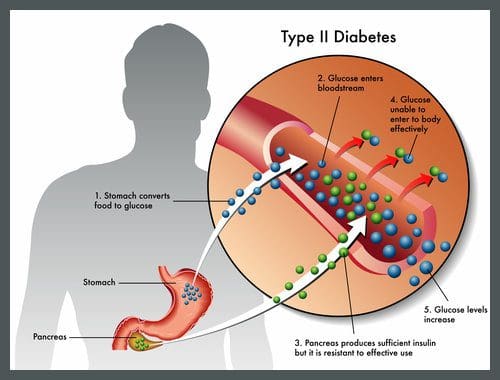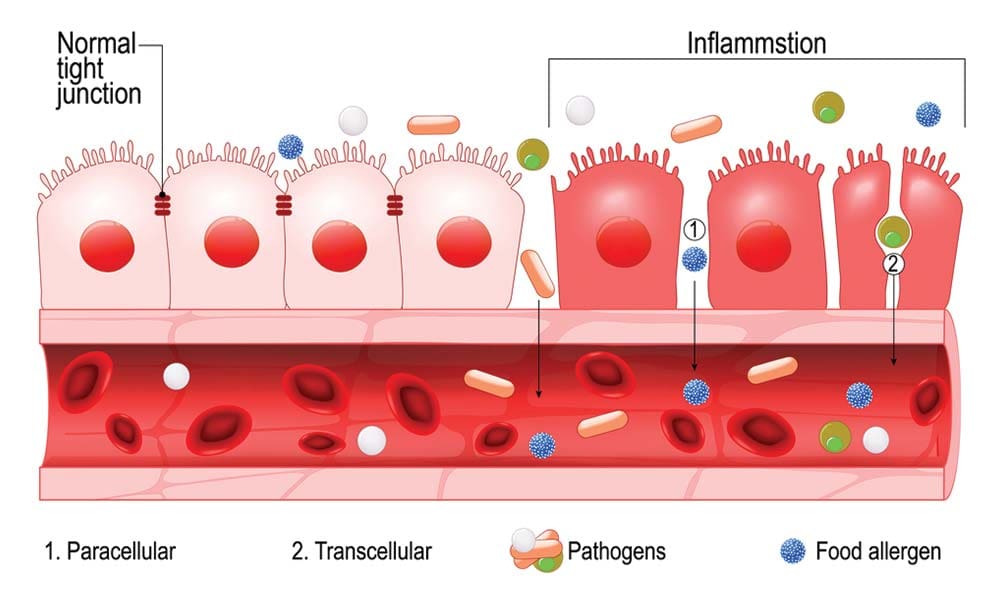Table of Contents
Introduction
The body needs insulin to make sure that the blood glucose is making each of the systems inside work properly and provide energy as well. By regulating insulin in the body, it can help the body from having unwanted pathogens disrupting the organ systems and increasing blood glucose levels. However, the body is not perfect as it encounters situations where the body can become dysfunctional over time if it is not treated. Unwanted pathogens can actually enter the body and cause many chronic illnesses to develop over time causing pain and suffering to the individual. In this article, we will be taking a look at how cardiovascular disease and diabetes are linked and how to prevent these two from rising in the body. By referring patients to qualified and skilled providers who specialized in cardiovascular services. To that end, and when appropriate, we advise our patients to refer to our associated medical providers based on their examination. We find that education is the key to asking valuable questions to our providers. Dr. Alex Jimenez DC provides this information as an educational service only. Disclaimer
Can my insurance cover it? Yes, in case you are uncertain here is the link to all the insurance providers we cover. If you have any questions, please call Dr. Jimenez at 915-850-0900.
How Cardiovascular Disease & Diabetes Are Linked?
When unwanted pathogens affect the body, a variety of chronic illnesses and conditions can pop up over time, even if the individual is healthy. Diabetes and cardiovascular diseases can work hand in hand by causing the blood glucose levels to rise in the bloodstream, while the arteries can have plaque build-up causing heart diseases to pop up. Research studies show that when the body has high blood glucose levels from diabetes, it can actually damage the blood vessels and the nerves that control the heart and over time lead to heart disease. Cardiovascular disease and diabetes are linked to each other through obesity, insulin resistance, and inflammation. Other studies have shown that amongst diabetics that obesity and type 2 diabetes are two of the major risk factors for cardiovascular disease and can increase the risk of heart failure in a person. Other conditions that diabetes and cardiovascular diseases are linked to include:
- Insulin Resistance
- Metabolic Syndrome
- Increased Gut Permeability
Insulin Resistance
Insulin resistance is an impaired biological response to insulin stimulation of targeted tissues as studies show. The study also showed that insulin resistance can impair glucose disposal and once it is progressed can lead to chronic conditions like diabetes, coronary heart disease, metabolic syndrome, and nonalcoholic fatty liver disease. Other studies have shown that as obesity and diabetes have reached epidemic proportions and with insulin resistance, it can cause an increase in blood glucose levels, and tissues and organs that require insulin will have excess amounts of glucose in their systems causing hyperinsulinemia to developed.
Metabolic Syndrome
Research studies have stated that metabolic syndrome is a cluster of disorders that can affect a person’s lifestyle which includes atherosclerotic cardiovascular disease, insulin resistance, and diabetes mellitus. Metabolic syndrome, when being assessed by physicians requires the measurement of waist circumference for patients. This is a simple but seldom performed procedure in general practice. The most essential components for the prevention and management of metabolic syndrome are measures to change diet and physical activity in order to achieve and sustain weight loss. Research shows that when metabolic syndrome is being diagnosed early, individuals can effectively employ a change of lifestyle and risk factor modifications to their bodies in order to live healthier.
Increased Gut Permeability
Since the gut microbiota contributes to host metabolism by several mechanisms including increased energy harvest from a healthy diet, modulation of lipid metabolism, altered endocrine function, and increased inflammatory tone. The gut microbiota could thus be considered to be an environmental factor that modulates obesity and other metabolic diseases. Studies have found that increased intestinal permeability can cause microbial translocation which can induce low-grade inflammation in various diseases. This means that when there are alterations in the intestinal permeability, intestinal
barrier function becomes compromised whereby access of infectious agents and dietary antigens to mucosal immune elements are facilitated, which may eventually lead to immune reactions with damage to pancreatic beta cells and can lead to increased cytokine production with consequent insulin resistance.
Other indications of an increased intestinal permeability as studies show when the gut barrier is compromised, toxins can seep out of the gut and into the bloodstream thus the immune system will start attacking the pathogens and cause low-grade inflammation. An increased gut permeability can lead to an increase of macromolecule being absorbed from the intestinal content resulting in systemic immune
responses and altering the signaling pathways influencing lipid and glucose metabolism.
Preventing CVD & Diabetes from Rising
There are many ways to prevent cardiovascular disease and diabetes from rising to dangerous levels in the body. Many individuals that want to get their life back in order ask for their primary health care providers to suggest to them a personalized diet that can help them in the long run. With each diet lifestyle, it can help successfully modify elevated postprandial blood glucose and its metabolic consequences. By finding the right nutritional diet, exercise, and lifestyle that works for individuals, they have a better chance to lower any chronic illnesses that they may have and can live life to the fullest.
Exercise
By finding the right kind of exercise routine or even starting out exercise is beneficial for a person to get moving and help alter the skeletal muscle metabolism and improves glucose uptake. By exercising regularly, the body will begin to feel much better since exercising can help reduce low-density lipoprotein, raise HDL while lowering blood pressure, reduce inflammation and oxidative stress. By incorporating exercise as a recovery process will benefit the body and the individual will notice that they are losing weight in a healthier way.
Eating Nutritious Food
Now exercising is only a third of the recovery process, as eating nutritious food that is filled with antioxidants, full of bright colors, and has the necessary vitamins and nutrients that the body needs. By making small changes to a person’s diet by swapping out the processed food with more fruits, vegetables, limiting the carbohydrates and oils in the food diet can provide the body a better chance to feel better. Eating nutritious food can even help the gut system by feeding the good bacteria and repairing the intestinal permeability back to normal. Plus one of the bonus points of eating nutritional food is that it can even lower the effects of cardiovascular diseases, regulate blood glucose levels and have antioxidant properties to lower inflammatory factors.
HCTP Research
HCTP therapy is a form of regenerative treatment that both internationally and nationally affiliated clinics and distribution organizations used to treat damaged cells, tissues, and organs by repairing them. HCTP therapy is beneficial for individuals who are in chronic pain as HCTP can help speed up the body’s own natural healing process to repair damaged cells.
Conclusion
All in all, cardiovascular disease and diabetes are two of the main factors to cause the body to be in chronic pain and be dysfunctional. By realizing that an unhealthy lifestyle can cause a chain reaction to inflammation, diabetes, and cardiovascular risk factors can lead the body to be in chronic pain over time. By incorporating a heart-healthy diet filled with nutritional food filled with antioxidants, vitamins, and minerals that provide beneficial properties to the body can lower these symptoms. With these changes, a person can begin their wellness journey with a better understanding on what causes them pain and begin to live life to the fullest.
References
Bischoff, Stephan C, et al. “Intestinal Permeability–a New Target for Disease Prevention and Therapy.†BMC Gastroenterology, BioMed Central, 18 Nov. 2014, https://www.ncbi.nlm.nih.gov/pmc/articles/PMC4253991/.
Freeman, Andrew M. “Insulin Resistance.†StatPearls [Internet]., U.S. National Library of Medicine, 10 July 2021, https://www.ncbi.nlm.nih.gov/books/NBK507839/.
Fukui, Hiroshi. “Increased Intestinal Permeability and Decreased Barrier Function: Does It Really Influence the Risk of Inflammation?†Inflammatory Intestinal Diseases, S. Karger AG, Oct. 2016, https://www.ncbi.nlm.nih.gov/pmc/articles/PMC5988153/.
Medical Professionals, NIDDKD. “Diabetes, Heart Disease, & Stroke.†National Institute of Diabetes and Digestive and Kidney Diseases, U.S. Department of Health and Human Services, Apr. 2021, https://www.niddk.nih.gov/health-information/diabetes/overview/preventing-problems/heart-disease-stroke.
Rochlani, Yogita, et al. “Metabolic Syndrome: Pathophysiology, Management, and Modulation by Natural Compounds.†Therapeutic Advances in Cardiovascular Disease, SAGE Publications, Aug. 2017, https://www.ncbi.nlm.nih.gov/pmc/articles/PMC5933580/.
Swarup, Supreeya. “Metabolic Syndrome.†StatPearls [Internet]., U.S. National Library of Medicine, 30 Oct. 2021, https://www.ncbi.nlm.nih.gov/books/NBK459248/.
Wilcox, Gisela. “Insulin and Insulin Resistance.†The Clinical Biochemist. Reviews, U.S. National Library of Medicine, May 2005, https://www.ncbi.nlm.nih.gov/pmc/articles/PMC1204764/.
Zang, P-Y. “Cardiovascular Disease in Diabetes.†European Review for Medical and Pharmacological Sciences, U.S. National Library of Medicine, 2014, https://pubmed.ncbi.nlm.nih.gov/25070828/.
Disclaimer
Post Disclaimer
Professional Scope of Practice *
The information herein on "Cardiovascular Disease & Diabetes Prevention" is not intended to replace a one-on-one relationship with a qualified health care professional or licensed physician and is not medical advice. We encourage you to make healthcare decisions based on your research and partnership with a qualified healthcare professional.
Blog Information & Scope Discussions
Welcome to El Paso's Premier Wellness, Personal Injury Care Clinic & Wellness Blog, where Dr. Alex Jimenez, DC, FNP-C, a Multi-State board-certified Family Practice Nurse Practitioner (FNP-BC) and Chiropractor (DC), presents insights on how our multidisciplinary team is dedicated to holistic healing and personalized care. Our practice aligns with evidence-based treatment protocols inspired by integrative medicine principles, similar to those on this site and our family practice-based chiromed.com site, and focuses on restoring health naturally for patients of all ages.
Our areas of multidisciplinary practice include Wellness & Nutrition, Chronic Pain, Personal Injury, Auto Accident Care, Work Injuries, Back Injury, Low Back Pain, Neck Pain, Migraine Headaches, Sports Injuries, Severe Sciatica, Scoliosis, Complex Herniated Discs, Fibromyalgia, Chronic Pain, Complex Injuries, Stress Management, Functional Medicine Treatments, and in-scope care protocols.
Our information scope is multidisciplinary, focusing on musculoskeletal and physical medicine, wellness, contributing etiological viscerosomatic disturbances within clinical presentations, associated somato-visceral reflex clinical dynamics, subluxation complexes, sensitive health issues, and functional medicine articles, topics, and discussions.
We provide and present clinical collaboration with specialists from various disciplines. Each specialist is governed by their professional scope of practice and their jurisdiction of licensure. We use functional health & wellness protocols to treat and support care for musculoskeletal injuries or disorders.
Our videos, posts, topics, and insights address clinical matters and issues that are directly or indirectly related to our clinical scope of practice.
Our office has made a reasonable effort to provide supportive citations and has identified relevant research studies that support our posts. We provide copies of supporting research studies upon request to regulatory boards and the public.
We understand that we cover matters that require an additional explanation of how they may assist in a particular care plan or treatment protocol; therefore, to discuss the subject matter above further, please feel free to ask Dr. Alex Jimenez, DC, APRN, FNP-BC, or contact us at 915-850-0900.
We are here to help you and your family.
Blessings
Dr. Alex Jimenez DC, MSACP, APRN, FNP-BC*, CCST, IFMCP, CFMP, ATN
email: [email protected]
Multidisciplinary Licensing & Board Certifications:
Licensed as a Doctor of Chiropractic (DC) in Texas & New Mexico*
Texas DC License #: TX5807, Verified: TX5807
New Mexico DC License #: NM-DC2182, Verified: NM-DC2182
Multi-State Advanced Practice Registered Nurse (APRN*) in Texas & Multi-States
Multi-state Compact APRN License by Endorsement (42 States)
Texas APRN License #: 1191402, Verified: 1191402 *
Florida APRN License #: 11043890, Verified: APRN11043890 *
Colorado License #: C-APN.0105610-C-NP, Verified: C-APN.0105610-C-NP
New York License #: N25929, Verified N25929
License Verification Link: Nursys License Verifier
* Prescriptive Authority Authorized
ANCC FNP-BC: Board Certified Nurse Practitioner*
Compact Status: Multi-State License: Authorized to Practice in 40 States*
Graduate with Honors: ICHS: MSN-FNP (Family Nurse Practitioner Program)
Degree Granted. Master's in Family Practice MSN Diploma (Cum Laude)
Dr. Alex Jimenez, DC, APRN, FNP-BC*, CFMP, IFMCP, ATN, CCST
My Digital Business Card
Licenses and Board Certifications:
DC: Doctor of Chiropractic
APRNP: Advanced Practice Registered Nurse
FNP-BC: Family Practice Specialization (Multi-State Board Certified)
RN: Registered Nurse (Multi-State Compact License)
CFMP: Certified Functional Medicine Provider
MSN-FNP: Master of Science in Family Practice Medicine
MSACP: Master of Science in Advanced Clinical Practice
IFMCP: Institute of Functional Medicine
CCST: Certified Chiropractic Spinal Trauma
ATN: Advanced Translational Neutrogenomics
Memberships & Associations:
TCA: Texas Chiropractic Association: Member ID: 104311
AANP: American Association of Nurse Practitioners: Member ID: 2198960
ANA: American Nurse Association: Member ID: 06458222 (District TX01)
TNA: Texas Nurse Association: Member ID: 06458222
NPI: 1205907805
| Primary Taxonomy | Selected Taxonomy | State | License Number |
|---|---|---|---|
| No | 111N00000X - Chiropractor | NM | DC2182 |
| Yes | 111N00000X - Chiropractor | TX | DC5807 |
| Yes | 363LF0000X - Nurse Practitioner - Family | TX | 1191402 |
| Yes | 363LF0000X - Nurse Practitioner - Family | FL | 11043890 |
| Yes | 363LF0000X - Nurse Practitioner - Family | CO | C-APN.0105610-C-NP |
| Yes | 363LF0000X - Nurse Practitioner - Family | NY | N25929 |
Dr. Alex Jimenez, DC, APRN, FNP-BC*, CFMP, IFMCP, ATN, CCST
My Digital Business Card








 Again, We Welcome You.
Again, We Welcome You.
Comments are closed.